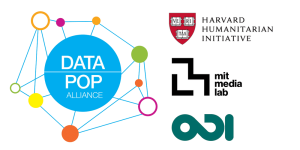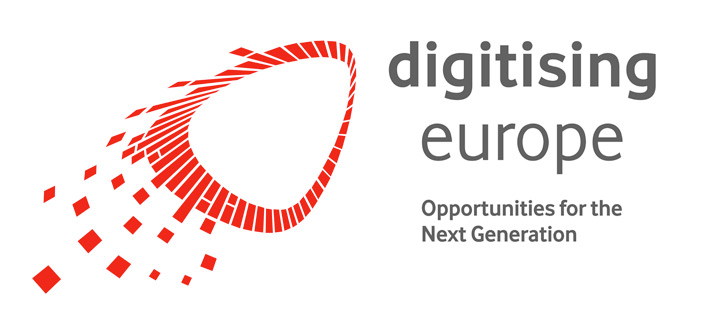#digitisingEU
Data-Pop Alliance and the Vodafone Institute for Society and Communications are partnering to organize a European-wide series of stakeholders’ dialogues on the ethics of Big Data over the next 6 months in major European cities. Our Academic Director, Alex ‘Sandy’ Pentland, and his debater, Andrew Keen, are kicking off the event November 12th in Berlin. Subsequent dialogues will be held in:
- Brussels – January 2016
- Madrid – March 2016
- Dublin – May 2016
These dialogues aim at creating deliberative spaces where different perspectives can be openly discussed to find common grounds and avoid unnecessary clashes, backlashes, and setbacks on the way to making data ‘work’ for people. We are hopeful that these events will generate excitement, ideas, and connections that contribute to crafting a human-centered data revolution.
In the last decade, society has witnessed a technological revolution that has transformed the way in which we interact, work, learn, and do business. It helps us to spot socially valuable insights or unlock new forms of economic value – the Big Data revolution. This rapid technology-driven development, however, raises some important political and ethical questions: How can we make full use of data analytics in a responsible and human-centered manner? Which forms of data use should be excluded, and who should set the rules?
Despite its unequivocal significance and growing presence across all sectors – from business to politics and education to civil society – the collection and use of personal data continues to lacks clear ethical, legal, and social parameters, rendering it a subject ripe for discussion and debate.
Last year, the Vodafone Institute for Society and Communications was proud to introduce the digitizing europe initiative – a high-quality forum for Pan-European discussion on the digital economy of Europe. The initiative launched with a high-level summit in December 2014 that German Chancellor Angela Merkel opened. Business leaders, startup founders, and policymakers participated in cross-sector dialogue on the digital transformation of education and the world of work.
This year, the Vodafone Institute is thrilled to partner with Data-Pop Alliance and usher the initiative into its second year with a comprehensive series of research publications, workshops, events, and lively debates on a subject whose relevance in society today cannot be contested – data analytics.
Political leaders, industry experts, young innovators, and top-notch experts from across sectors will convene and contribute to a high-level dialogue on the data revolution. Topics to be addressed include:
- Applications and Implications of The Data Revolution
- Privacy by Default / Privacy by Design
- Creating a Political Framework for Data Analytics
- Corporate Codes of Conduct and User Protection
and much more…
Keynote speeches by renowned experts, Oxford-style debates between leaders in the field, and workshops designed to facilitate the development of real world, real-time solutions will all contribute to this groundbreaking series. By creating greater public and political awareness of its outcomes, the series will seek to strengthen the unique opportunities and counter the serious challenges that Big Data poses for society today.
Two of the most renowned international protagonists of the debate on digital transformation will join the “digitising europe initative 2015”: Andrew Keen and Alex “Sandy” Pentland.
The Vodafone Institute for Society and Communications explores the potential of mobile and digital technologies to improve political, social and economic participation and to give better access to education. The institute is a think and do tank that fosters the dialogue between science, business and politics. It initiates projects and research, and publishes reports to give practical recommendations for decision makers. Through events and social media communications the Institute provides a platform for debate.
Watch the full video from the first event below.





